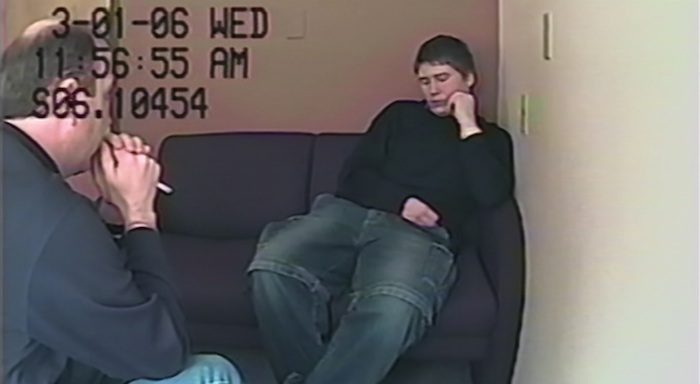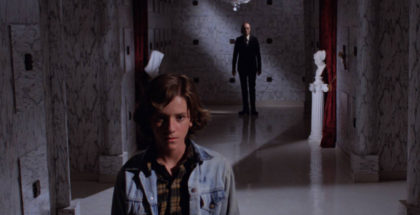US court upholds Brendan Dassey conviction
David Farnor | On 11, Dec 2017
A US court has upheld the conviction of Brendan Dassey, only months after it was overturned.
Dassey was sentenced to life in 2007 for photographer Teresa Halbach’s death on Halloween two years earlier. Dassey told detectives he helped his uncle, Steven Avery, rape and kill Halbach in the Avery family’s Manitowoc County salvage yard. Avery was sentenced to life in a separate trial.
Netflix’s Making a Murderer documentary, which was released late in 2015, followed the decade-old case of Avery and Brendan, bringing international attention to what the filmmakers and attorneys argued were miscarriages of justice. While Dassey confessed to the crime, attorneys later said his constitutional rights were violated. In 2016, Judge Willian Duffin found that investigators in the 2007 trial repeatedly made “false promises” to Dassey, assuring him had “nothing to worry about”. This summer, Duffin’s decision was upheld by the Court of Appeals, with a 2-1 ruling by a panel of judges.
Now, the state has appealed and a panel from the Seventh Circuit Court of Appeals has voted 4-3 that Dassey’s confession was voluntary, thereby upholding his original conviction. The 27-year-old will now remain in prison, pending any further appeals.
One of the judges, who voted that his confession was involuntary, told the Chicago-Sun Times: “His confession was not voluntary and his conviction should not stand. I view this as a profound miscarriage of justice.”
Judges: Brendan Dassey’s confession improperly obtained
23rd June 2017
Brendan Dassey’s confession was improperly obtained, judges have ruled this week, in a major step towards freedom for the prisoner featured in Netflix’s Making a Murderer documentary.
Dassey was sentenced to life in 2007 for photographer Teresa Halbach’s death on Halloween two years earlier. Dassey told detectives he helped his uncle, Steven Avery, rape and kill Halbach in the Avery family’s Manitowoc County salvage yard. Avery was sentenced to life in a separate trial.
Netflix’s series, which was released late in 2015, followed the decade-old case of Avery and Brendan, bringing international attention to what the filmmakers and attorneys argued were miscarriages of justice – and the show swiftly became an international sensation, with viewers calling for justice online. One miscarriage of justice was the police questioning of Dassey, who was not given legal or adult representation, despite his learning difficulties. While Dassey confessed to the crime, attorneys later said his constitutional rights were violated.
Last August, Judge William Duffin ruled that investigators had made false promises to Dassey, making his confession involuntary – a ruling that effectively quashed his conviction. Prosecutors were quick to appeal that decision, filing their challenge with the 7th US Circuit Court of Appeals. Now, though, Duffin’s decision has been upheld by the Court of Appeals, with a 2-1 ruling by a panel of judges.
Dassey has been kept behind bars throughout the appeals process. This latest ruling, though, still doesn’t guarantee his release – the state of Wisconsin can still appeal again to the US Supreme Court, or retry Dassey. They have a window of 90 days to do either.
“We are evaluating the 2-1 decision from the court,” Johnny Koremenos, director of communications and public affairs for the Wisconsin Department of Justice, told USA Today. “We anticipate seeking review by the entire 7th Circuit or the United States Supreme Court and hope that today’s erroneous decision will be reversed.”
“As of today, Brendan has been locked up for 4,132 days,” commented one of Dassey’s attorneys. “For the first time, this decision brings the end of that road in sight. We’re not there yet.”
Nonetheless, the ruling is a major step forward in a long-running campaign for justice. It will have big consequences for Season 2 of Making a Murderer, which Netflix has already commissioned, and arguably marks one of the biggest impacts a documentary has had since the damning Seaworld flick Blackfish.
Making a Murderer: Brendan Dassey freed by judge
15th November 2016
A US judge has ordered the release of Brendan Dassey, one of the men who was featured in Netflix’s Making a Murderer.
The documentary series, which was released late last year, followed the decade-old case of Steven Avery and Brendan, his nephew, who were both convicted of the murder of Teresa Halbach in 2005. Bringing international attention to what the filmmakers and attorneys argued were miscarriages of justice, the show became an immediate sensation, as angry, shocker viewers to the Internet to call for justice.
One particular focus of the series was the police questioning of Dassey, who was not given legal or adult representation, despite his learning difficulties. Dassey confessed to the crime, but attorneys later said his constitutional rights were violated.
In August, Judge William Duffin quashed Dassey’s conviction, on the basis that investigators made false promises to him by saying “he had nothing to worry about”. Prosecutors are appealing the decision, but the same judge has now ordered Dassey’s immediate freedom, until the next steps in the appeal process become clear.
The release is subject to conditions of supervision, with Dassey required to notify the probation and parole office of his address of residence by midday today and forbidden from having any contact with either Ms Halbach’s family or Avery.
With Thanksgiving on 24th November, Dassey’s lawyer told the press that the focus is now on “getting him home, getting him with his family and then helping him to re-integrate back into society while his appeal plays out”.
Avery’s legal team still hope to clear him on the grounds of DNA evidence. The makers of Making a Murderer, meanwhile, have announced that there will be a second season continuing to follow the case.
Making a Murderer: Brendan Dassey’s conviction overturned
12th August 2016
Brendan Dassey’s conviction has been overturned by a federal court in Wisconsin.
The fact that this news could be considered a spoiler for Season 2 of Making a Murderer is testament to just how much Netflix’s documentary series has become entwined with the real-life cases of Dassey and his uncle, Steven Avery. Dassey was convicted as a teenager, in a separate trial to Avery, for the murder of Teresa Halbach. Both were sentenced to life in prison.
In 2015, the Netflix show examined the decade-old case, after the filmmakers followed it throughout each of those 10 years. The result was a phenomenal hit for the streaming service, but also a success for the campaign to free Avery, after the show brought international attention to what the filmmakers and attorneys argued were miscarriages of justice, due to the alleged mishandling of evidence.
One particular focus of the series was the police questioning of Dassey, who was not given legal or adult representation, despite his intellectual disability. Dassey confessed to the crime, but attorneys later said his constitutional rights were violated.
At the start of this year, Dassey was awaiting a verdict on a federal appeal by Dassey’s team, following a failed state appeal, calling for a completely new trial, due to public defender Len Kachinsky’s “disloyalty” to Dassey in 2006. Today, that verdict finally arrived, with Judge William Duffin ruling that Dassey’s conviction should be overturned.
Dassey will walk free in 90 days, unless prosecutors decide to retry him.
Duffin ruled that investigators made false promises to Dassey by telling him he had “nothing to worry about”.
“These repeated false promises, when considered in conjunction with all relevant factors, most especially Dassey’s age, intellectual deficits, and the absence of a supportive adult, rendered Dassey’s confession involuntary under the Fifth and Fourteenth Amendments,” the judge of the District Court in Milwaukee wrote.
The decision comes just after Netflix has announced that Making a Murderer will return for further episodes, continuing to examine the ongoing legal battles surrounding Avery and Dassey.
The new episodes will offer “exclusive access” to Avery’s new lawyer, Kathleen Zellner, and Dassey’s legal team, led by Laura Nirider and Steve Drizin.
“We are extremely grateful for the tremendous response to, and support of, the series. The viewers’ interest and attention has ensured that the story is not over, and we are fully committed to continuing to document events as they unfold,” said creators, Laura Ricciardi and Moira Demos, of the renewal for more episodes.
The ending for Dassey may be “spoiled”, in entertainment terms, but the fact that this story has become a public narrative is worthy of celebration in itself. The fact that it looks set for a happy ending, meanwhile, couldn’t have been scripted better.
Read: The six stages of watching Making a Murderer.

















